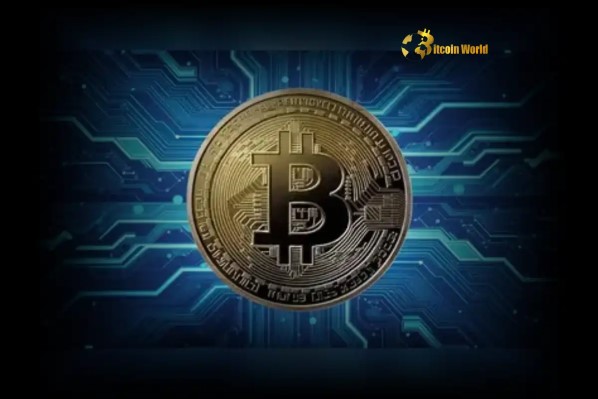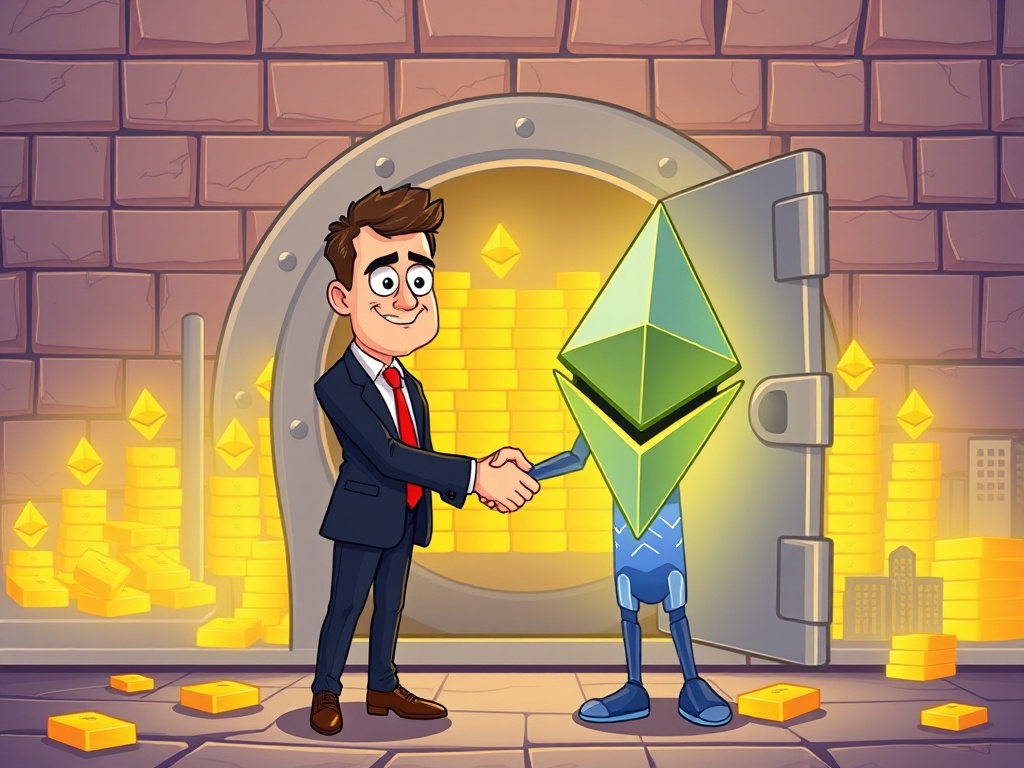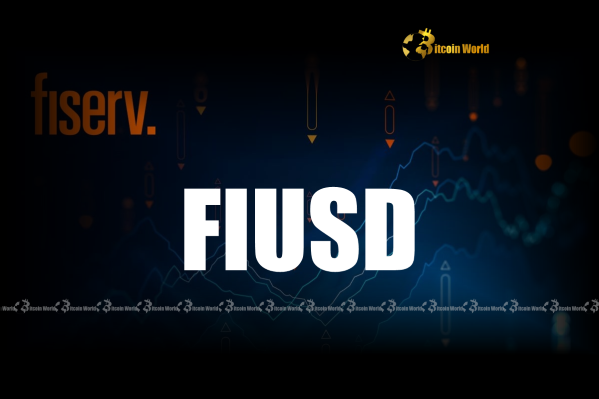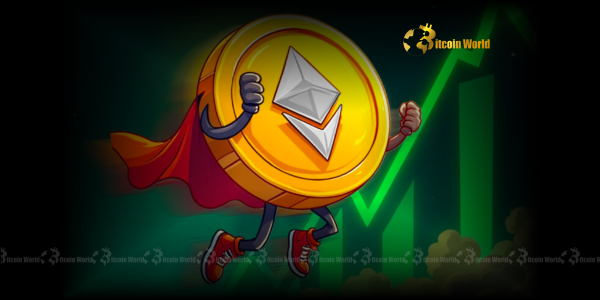BitcoinWorld

Peter Schiff Bitcoin Claims: Is Gold Truly the Only Reserve Asset?
Veteran gold advocate and renowned Bitcoin skeptic, Peter Schiff, recently stirred the pot by attending the Bitcoin 2025 conference in Las Vegas. His presence alone was noteworthy, but it was his outspoken commentary that truly grabbed headlines, reigniting the fiery Peter Schiff Bitcoin debate. Schiff didn’t hold back, leveling sharp criticisms against the leading cryptocurrency and firmly reiterating his long-held belief that only gold holds the status of a true reserve asset.
What Exactly Did Peter Schiff Claim About Bitcoin?
Schiff, the CEO of Euro Pacific Capital, used the platform not to praise Bitcoin, but to dismantle its perceived value and purpose. His core arguments, as stated during or around the conference, were pointed and direct:
- No Intrinsic Value: Schiff asserted that Bitcoin is an asset devoid of intrinsic value. Unlike commodities or productive assets, he argues, Bitcoin doesn’t inherently produce anything or have a physical use case beyond speculation. This lack of inherent worth, in his view, means it cannot create real wealth in the traditional sense.
- A ‘Giant Cult’: Perhaps his most provocative claim was labeling the Bitcoin community a “giant cult.” This suggests a group bound by fervent, perhaps irrational, belief rather than fundamental value or logic.
- Not a Technological Innovation: Countering a common narrative, Schiff dismissed Bitcoin as a significant technological breakthrough, instead comparing its structure and market dynamics to that of a meme coin – assets often driven purely by hype and community sentiment rather than underlying technology or utility.
- Gold is the ONLY True Reserve Asset: Schiff doubled down on his stance that gold is the unparalleled store of value and the sole true reserve asset. He cited the continued purchasing of gold by central banks globally as evidence supporting this claim, contrasting it sharply with their lack of significant Bitcoin holdings.
These statements underscore the fundamental divide between gold bugs like Schiff and the burgeoning cryptocurrency world. For Schiff, Bitcoin’s value is purely speculative, a bubble waiting to burst, while gold’s value is timeless, proven by millennia of history and its tangible nature.
Exploring the Core of the Bitcoin Intrinsic Value Debate
The concept of Bitcoin intrinsic value is a central point of contention. For traditional investors like Schiff, intrinsic value is often tied to physical properties, utility, or the ability to generate future cash flows (like a stock). Gold has industrial uses, serves as jewelry, and has a long history as a medium of exchange and store of value.
Bitcoin proponents argue that its value isn’t ‘intrinsic’ in the traditional sense, but derived from other crucial factors:
- Decentralization: Its independence from central authorities makes it censorship-resistant and a hedge against traditional financial system risks.
- Scarcity: The hard cap of 21 million coins creates digital scarcity, a key driver of value, similar to how the limited supply of gold contributes to its value.
- Network Effect: The growing number of users, developers, and businesses built around Bitcoin increases its utility and security.
- Security: The robust proof-of-work mechanism makes the network incredibly secure against attacks.
- Utility as Digital Gold/Store of Value: In a digital age, Bitcoin offers a way to store and transfer value across borders without intermediaries, acting as a digital alternative to gold.
While Bitcoin lacks physical form or industrial use, its value proposition lies in its unique digital properties and the robust network supporting it. The debate hinges on whether these digital attributes constitute a form of ‘intrinsic’ or fundamental value in the 21st century.
Is the Bitcoin Community a ‘Giant Cult’? Addressing the Bitcoin Cult Claim
Schiff’s description of the community as a Bitcoin cult is undoubtedly inflammatory. While the term ‘cult’ typically implies blind devotion, manipulative leadership, and isolation from reality, the Bitcoin community is characterized by passionate belief, strong evangelism, and a shared vision for a decentralized future.
Similar to early adopters of any revolutionary technology or movement, Bitcoin enthusiasts often display deep conviction and are eager to convert others. They pore over technical details, debate economic theories, and actively participate in promoting adoption. This passion can sometimes be perceived as cult-like by outsiders, especially given the asset’s volatility and the strong conviction many holders have in its long-term success despite setbacks.
However, comparing it directly to a harmful cult ignores the open, decentralized nature of the community, the lack of a single leader, and the fact that participation is voluntary and based on investment thesis or ideological alignment rather than coercive control. While pockets of extreme views or toxic behavior exist, labeling the entire global community a ‘cult’ is a broad generalization that many find unfair and dismissive.
Bitcoin vs Gold: The Ultimate Reserve Asset Showdown
The core of Schiff’s argument and a perpetual topic of discussion is the Bitcoin vs Gold comparison. For centuries, gold has been the go-to asset during times of economic uncertainty, held by individuals and nations alike as a hedge against inflation and currency devaluation. Its status as a Gold reserve asset is well-established.
Bitcoin, on the other hand, is a newcomer, only gaining prominence in the last decade. Its proponents argue it possesses properties that make it superior to gold in the digital age. Let’s look at a comparison:
| Feature | Gold | Bitcoin |
|---|---|---|
| Intrinsic Value (Traditional View) | Yes (Physical, Industrial, Jewelry) | Debatable (Digital Utility, Network Effect) |
| Scarcity | Finite (Mining is difficult but supply increases) | Absolutely Finite (Hard cap of 21 million) |
| Portability | Difficult (Heavy, requires security) | Easy (Digital, can be sent anywhere instantly) |
| Divisibility | Difficult (Cutting/melting) | Easy (Divisible up to 8 decimal places – satoshis) |
| Verifiability | Requires expertise/equipment | Easy (Blockchain transparency) |
| Storage Cost/Security | Requires secure vaults, insurance | Requires digital security (wallets, keys) |
| Historical Precedent as Money/Store of Value | Thousands of years | ~15 years |
| Central Bank Adoption as Reserve Asset | Widespread and increasing | Minimal (Some exploration/discussion) |
| Volatility | Relatively low | High |
While gold has the advantage of history and stability, Bitcoin excels in areas like portability, divisibility, and transparency in the digital realm. The debate isn’t just about which is better, but whether Bitcoin can carve out its own role as a digital store of value or even a future reserve asset alongside, or perhaps eventually challenging, gold.
Why Do Central Banks Still Prefer Gold?
Schiff correctly points out that central banks are currently buying gold, not Bitcoin. This preference for Gold reserve asset status among national banks stems from several factors:
- History and Trust: Gold has been a trusted store of value and medium of exchange for millennia. Central banks have vast experience managing gold reserves.
- Stability and Liquidity: While not immune to price swings, gold is generally less volatile than Bitcoin and has deep, established global markets for trading.
- Regulatory Clarity: The legal and regulatory framework around holding and managing gold is well-defined internationally. Bitcoin, conversely, faces significant regulatory uncertainty in many jurisdictions.
- Physical Control: Central banks can physically hold and secure their gold reserves within their borders, offering a sense of direct control that differs from holding digital assets distributed globally.
However, the landscape is slowly evolving. Some central banks and international bodies are exploring digital currencies (CBDCs) and the potential implications of decentralized cryptocurrencies. While mass adoption of Bitcoin as a central bank reserve asset isn’t imminent, the conversation is no longer entirely off the table for some forward-thinking institutions.
Actionable Insights for Investors
What should investors take away from the ongoing Peter Schiff Bitcoin vs. Gold debate?
- Do Your Own Research: Don’t rely solely on the opinions of one person, whether they are a gold bug or a Bitcoin maximalist. Understand the fundamentals of both assets.
- Consider Diversification: Many investors choose to hold both gold and Bitcoin as part of a diversified portfolio, leveraging the unique characteristics of each.
- Understand Your Risk Tolerance: Bitcoin is significantly more volatile than gold. Assess how much risk you are comfortable taking.
- Long-Term Perspective: Both gold and Bitcoin are often viewed as long-term stores of value. Consider your investment horizon.
Schiff’s criticisms, while harsh, highlight legitimate questions about Bitcoin’s valuation and role. However, they often overlook the innovative aspects and growing adoption that make Bitcoin a compelling asset for many in the digital age.
Conclusion: An Unending Debate
Peter Schiff’s appearance at the Bitcoin 2025 conference and his subsequent remarks served as a stark reminder of the ideological chasm separating traditional finance advocates and the cryptocurrency world. His claims of Bitcoin having no Bitcoin intrinsic value, being a ‘giant cult,’ and his insistence on gold as the sole Gold reserve asset are consistent with his long-held views.
While Schiff’s criticisms resonate with those skeptical of digital assets, they fail to fully capture the arguments for Bitcoin’s value derived from its decentralized network, absolute scarcity, and growing utility as a digital store of value. The Bitcoin vs Gold debate is far from over, reflecting differing views on what constitutes value and security in the modern economy.
Ultimately, the choice between Bitcoin, gold, or a combination of both depends on an individual investor’s financial goals, risk appetite, and belief in the future trajectory of both traditional and digital assets. Schiff’s comments, though controversial, contribute to a necessary dialogue about the nature of money and value in the 21st century.
To learn more about the latest Bitcoin trends, explore our article on key developments shaping Bitcoin institutional adoption.
This post Peter Schiff Bitcoin Claims: Is Gold Truly the Only Reserve Asset? first appeared on BitcoinWorld and is written by Editorial Team





